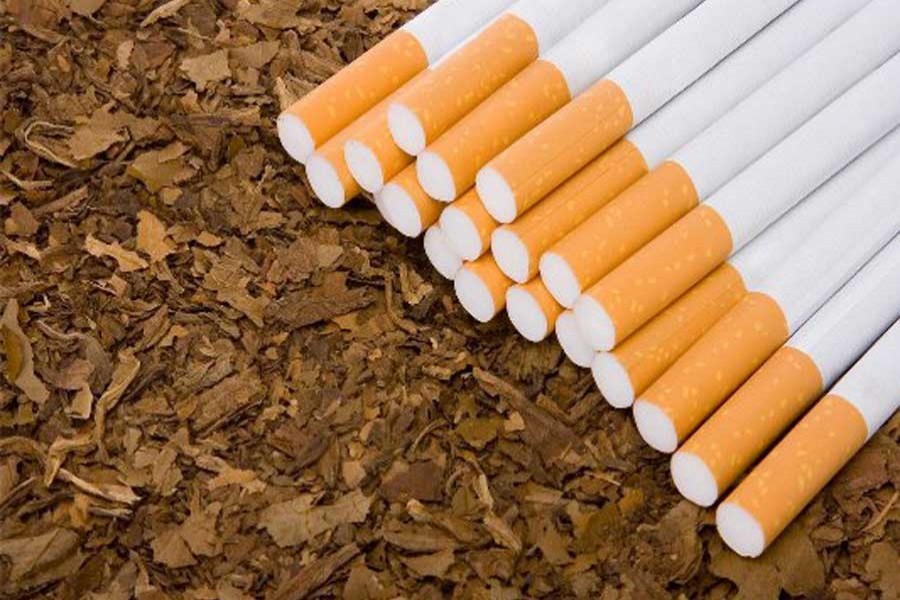Illicit tobacco & industry interference in Bangladesh

Rumana Huque, S M Abdullah, Nahian Azad Shashi and Tahmid Hasan
Published :
Updated :

On January 2016, Prime Minister Sheikh Hasina expressed the noble vision that Bangladesh will be a tobacco-free country by 2040. The commitment raised our hopes about interference-free policy making opportunities in the arena of tobacco control. The political commitment has also been somewhat strong after the announcement resulting in increased efforts by the health authorities to control tobacco.
However, there has been little progress in terms of designing tax structures and controlling consumption. Repeated tobacco industry interference is still flagged as the main stumbling block for effective tobacco control measure. In terms of tobacco control measures, according to "Global Tobacco Index 2020" the country is ranked 27 among 57 countries with an industry interference index score of 68, which is significantly high.
According to 2017 data, around 38 million adults in Bangladesh consume tobacco regularly. Among them, 15 million are cigarette smokers. There is a unanimous consensus that besides limiting interference from tobacco industry and presence of effective and efficient tobacco tax structure, elimination of all forms of illicit tobacco trade is also an essential tobacco control measure. Although the country's tobacco burden is high, little is known about its magnitude, pattern and determinants in Bangladesh.
Whenever there is a talk about increasing tobacco taxes, the tobacco industry tries to interfere in the process by bringing up the argument of "illicit trade". In general words, illicit trade in tobacco embraces any illegal actions during the lifespan of a tobacco product. There are three broad categories of such products, namely: counterfeit, smuggled and illicit whites. We conducted a study to find the basis of this threat and estimated the magnitude of illicit cigarette sold as retail in Bangladesh. As operational definition of illicit we have considered packaging non compliances of cigarettes that would make the products counterfeit. From 80 different areas covering the whole country a total of 1,339 retailers were approached to collect nearly 23,207 empty cigarette packs, and another 1,156 packs were collected as littered from the streets. The packs were examined with respect to six features on the basis of country's tobacco law. We checked if the packs mentioned retail price, brand element, appropriate graphic and textual health warnings, sales declaration, and authentic tax stamps.
Our analysis reveals that cigarette market in Bangladesh is dominated by domestic production which limits the threat of smuggling. It also reveals that the overall magnitude of illicit share (share of noncompliant cigarette packs with respect to the above mentioned six features) is only 5.4 per cent of the total cigarettes sold in the market. The absence of authentic tax stamps on the cigarette packs is the major reason behind the prevalence of illicit cigarettes in Bangladesh. Such findings show that the threats forwarded by tobacco industry regarding illicit trade are not a credible one. "illicit trade" seems to be more of a "governance related phenomena" than a tax related one.
The tobacco industry interference in the national policy making is not a new phenomenon. They have been doing it for many years in a very strategic manner. During the Covid-19 pandemic, industry interference had only been further intensified. They lobbied with the concerned ministries and gained permission to continue production, marketing, and distribution of tobacco during the lockdown by exploiting an outdated law named "Essential Commodities Act 1956", which categorises cigarette as an essential commodity in Bangladesh. Proper initiatives need to be taken to make the necessary changes in the regulation and treat the issues related to tobacco with a holistic approach.
While the Ministry of Health and Family Welfare (MoHFW) has shown strong commitment in tobacco control efforts, there are other government bodies which have been utilised by the tobacco companies to impede policies important for curbing tobacco prevalence. For instance, existing 10 per cent export duty on minimum factored tobacco was withdrawn in the budget FY 2018-19. Moreover, Supplementary Duty (SD) on non-filter bidi reduced to 30 per cent from 35 per cent by issuing statutory regulatory orders to accommodate the demand raised by bidi industry. Besides, government shares in the company are also a major obstacle to tobacco control in Bangladesh.
The magnitude of illicit production in Bangladesh can be further reduced to a very negligible level by introducing and implementing effective "tracking and tracing system". For proper implementation of tobacco control regulations in Bangladesh including the FCTC, we must strengthen the capacity of the National Tobacco Control Cell (NTCC). The institutional memory of this regulatory body should be amplified further. Limitation of resources further hampers the cell from performing extensive monitoring, awareness building initiative, and implementing quality research. All these limit the implementation of mandate for the organisation.
Besides, the government bodies need to engage more with the civil society, NGOs, think tanks, media, and tobacco control advocates to enforce better implementation and enforce formulation of tobacco regulations. The collaboration among NTCC and NGOs might be increased and extensive sensitisation programme can be carried out targeting different government bodies working in division, district and sub district level.
Dr. Rumana Huque, Professor, Department of Economics, University of Dhaka and Executive Director, ARK Foundation. rumanah14@yahoo.com
S M Abdullah, Associate Professor, Department of Economics, University of Dhaka and Research Fellow, ARK Foundation. abdullahsonnet@gmail.com.
Nahian Azad Shashi, Research Associate, Bangladesh Institute of Development Studies (BIDS). nahianazad2016@gmail.com
Tahmid Hasan, Research and Communications Officer, ARK Foundation. tahmid@arkfoundationbd.org


 For all latest news, follow The Financial Express Google News channel.
For all latest news, follow The Financial Express Google News channel.